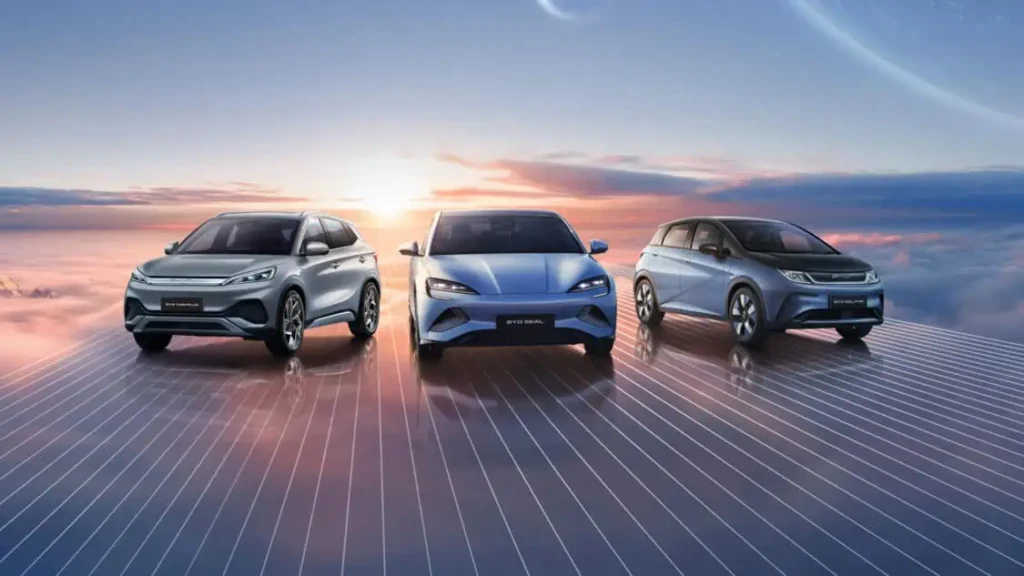White House Moves to Block Connected Vehicles From China and Countries of Concern
On September 23, 2024, the Biden administration released its FACT SHEET: Protecting America from Connected Vehicle Technology from Countries of Concern.
The fact sheet said, “Chinese automakers are seeking to dominate connected vehicle technologies in the United States and globally, posing new threats to our national security, including through our supply chains.” The administration gave details by saying in the sheet, “The Department of Commerce is issuing a notice of proposed rulemaking (NPRM) that would, if finalized as proposed, prohibit the sale or import of connected vehicles that incorporate certain technology and the import of particular components themselves from countries of concern, specifically the People’s Republic of China (PRC) and Russia.”

This announcement represents the latest phase in a process initiated by President Biden in February 2024, focusing on the national security implications of technologies used in connected vehicles. The Notice of Proposed Rulemaking (NPRM) builds upon public feedback gathered in response to the Department of Transportation’s advance notice of proposed rulemaking (ANPRM) issued on March 1, 2024. The ANPRM sought public comment on the potential national security risks associated with certain technologies in vehicles. The feedback from this consultation is now being incorporated into the NPRM, which will propose specific regulatory actions aimed at safeguarding connected vehicle infrastructure from security threats while advancing innovation in the automotive sector.
Connected vehicles offer numerous benefits, including enhanced vehicle safety and advanced driver assistance systems like navigation and automated driving. However, these technologies also introduce new and evolving security threats. The systems within connected vehicles not only control movement but also collect and transmit sensitive data about drivers, passengers, and the surrounding environment. This includes cameras and sensors that record detailed information about American infrastructure, feeding into broader digital networks. As vehicles become more integrated into the nation’s digital infrastructure, they are exposed to potential cyberattacks, data breaches, and other vulnerabilities, posing risks to both individual privacy and national security. Ensuring robust security measures for connected vehicles is essential to protect against these growing threats.
The Department of Commerce has identified significant risks stemming from the increasing connectivity of vehicles, particularly regarding the collection and potential exploitation of sensitive information. Certain hardware and software integrated into connected vehicles allow for the capture of data related to geographic areas and critical infrastructure. This creates opportunities for malicious actors to disrupt vehicle operations or even interfere with essential infrastructure. Technologies originating from the People’s Republic of China (PRC) and Russia have been singled out as especially high-risk, with the Department noting that these nations could exploit connected vehicle technologies within U.S. supply chains for purposes of surveillance, sabotage, or other actions that undermine national security. As vehicles become more intertwined with critical systems, addressing these threats has become a priority for maintaining the integrity of both U.S. infrastructure and its technological advancements.
The Department of Commerce’s proposed rule aims to address national security concerns by prohibiting the import or sale of certain connected vehicle systems (VCS) and automated driving systems (ADS) that are linked to entities with connections to the People’s Republic of China (PRC) or Russia. These systems include those that connect vehicles to external networks via Bluetooth, cellular, satellite, and Wi-Fi, as well as ADS, which enable highly autonomous vehicles to operate without a human driver.
The rule restricts the import and sale of connected vehicles using VCS and ADS software, along with the importation of hardware equipment related to VCS. To reduce potential disruption, particularly for smaller vehicle producers, the rule also includes provisions for exemptions. These exemptions would be granted on a case-by-case basis for entities facing undue hardship, allowing certain parties to continue their operations without excessive burden while ensuring the broader security objectives of the rule are met. This balanced approach seeks to protect national security without unnecessarily disrupting the automotive and technology industries.
The prohibitions outlined by the Department of Commerce regarding connected vehicle technologies are set to take effect for software in Model Year 2027, while restrictions on hardware will be enforced for Model Year 2030, or January 1, 2029, for units that do not have a designated model year. These measures are intended to mitigate national security risks associated with connected vehicle technologies sourced from nations deemed as threats.
As the Department of Commerce finalizes the rule, the Administration invites feedback from stakeholders to ensure that various perspectives are considered. The Department will maintain ongoing consultations with industry representatives, U.S. allies, and other relevant parties to ensure that the final regulations effectively safeguard U.S. national security without causing unintended disruptions in the market.
The Biden-Harris Administration has prioritized addressing threats from foreign automobiles and supply chains comprehensively. In May, President Biden raised the tariff rate on Chinese electric vehicles from 25% to 100% under Section 301. Additionally, the Inflation Reduction Act has tied eligibility for the $7,500 electric vehicle tax credit to criteria such as final assembly in North America and sourcing critical battery minerals and components from the U.S. or allied nations. These initiatives highlight the Administration’s commitment to fostering a competitive American auto industry that excels in quality and innovation while preparing for the next generation of vehicles.

Electric Vehicle Marketing Consultant, Writer and Editor. Publisher EVinfo.net.
Services
